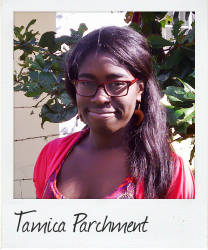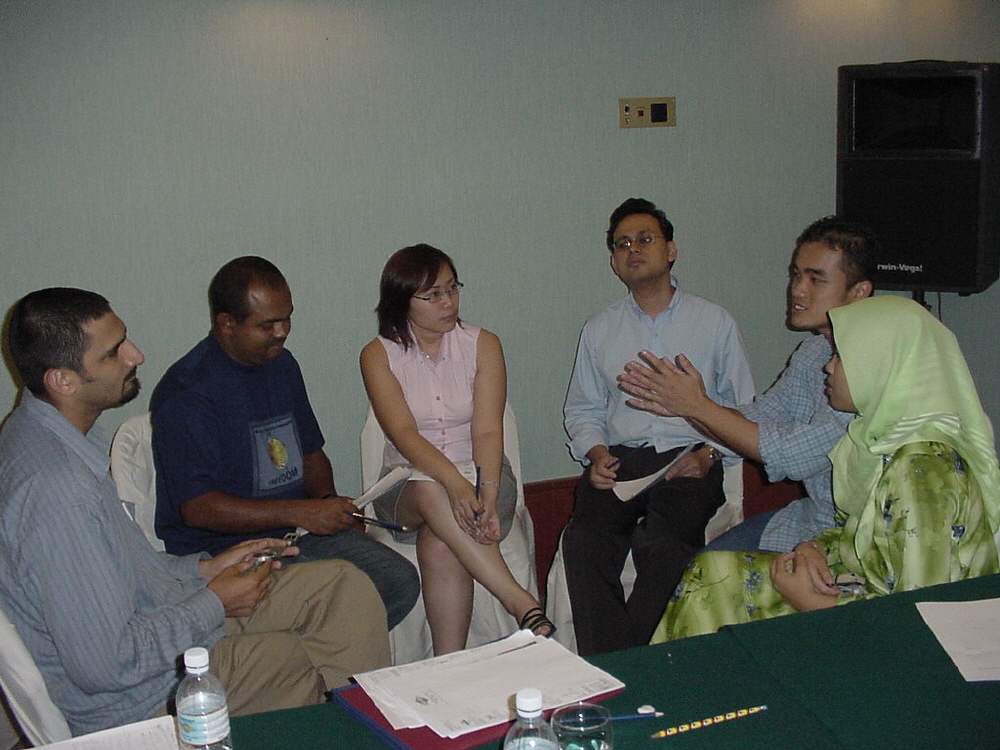“Ignoring race does not solve the problem”
December 8 The modern world rejects social injustices like slavery, segregation, and racial inequality, writes Tamica Parchment, 24, a Commonwealth Correspondent from Kingston, Jamaica. Yet complaints persist about racism and how it affects the lives of young people.
The modern world rejects social injustices like slavery, segregation, and racial inequality, writes Tamica Parchment, 24, a Commonwealth Correspondent from Kingston, Jamaica. Yet complaints persist about racism and how it affects the lives of young people.
It’s amazing the way that human beings can ignore a problem in the hope that it will go away on its own.
The nagging headache that you’ve been having all day; the things that our friends or family do that hurt or annoy us. We prefer to ignore them to avoid conflict or confrontation.
What’s even more amazing is that we apply this tool to our relationships with other human beings and their race or culture. Though race and culture are often a large part of identity, we use catch phrases like “post-racial society” or “multi-culturalism”. Because the modern world rejects social injustices like slavery, segregation, scientific racism and racial inequality, we argue that racism no longer exists.
So it is strange that on this outlet for youth and many others, there are constant complaints about racism and how it affects young people’s daily lives. Surely these are isolated cases if racism is no longer widespread. If indeed we have left that ignorant behaviour behind, all cultures must be accepted and connected.
The truth is that the Civil Rights Movement, Decolonization and other movements to fight against supremacy are very recent and the attitudes still remain. For example, the United States is one of the most racially integrated societies in the world, yet when President Obama was elected a host of racist tweets and blog posts were released online. Many of the offenders were young people who should “know better”.
In some cases, racism has evolved to “culturalism”. This means it is the culture and lifestyle that is offensive, not a person’s race. But the racist nature of this perspective is obvious. These statements are nonsensical, as all Black people do not act the same, neither do all Asians. The only thing they have in common is their colour, so how is it possible to say that race is not the real issue? And when these issues are challenged, it is perceived as a plot to incite a “race war”. In other words, challenging supremacy or the status quo will cause conflict.
The solution seems so simple, yet we prefer to ignore the problem. That way nobody has to lose their privilege and nobody’s feelings has to get hurt – except the unfortunate people who continue to suffer discrimination.
“Racism persists because there has been no serious effort made to challenge the interconnections between the idea of race and the institutions and structures of the modern nation-state. Race has been semantically conquered, but it remains deeply ingrained in the political imaginaries, structures and practices of ‘the West’,” according to writers in “The Crisis of Multiculturalism; Racism in a Neoliberal Age”. (Lentin & Titley, 2001)
While this was directed to Western countries, I’m sure the same can be said about countries around the world. The problem and the way it is engrained in all aspects of our daily lives must be actively confronted by society if we ever want real resolution.
The Commonwealth theme this year is Connecting Cultures. Isn’t it time for us to assess what it will take to have a true, equal connection? Ignoring our differences won’t help. We need to embrace them fully to move forward.
Photo: CYP/Commonwealth Secretariat
…………………………………………………………………………………………………………………
About me:
I’m a television editor/producer and business communications specialist. I have a first degree in media and communications and international relations. I enjoy classic literature, art, studying languages and reading about foreign policy and other political issues.
I have two goals I would like to achieve in my lifetime: to travel to many places around the world and to make an impact through media by encouraging behavioural change.
…………………………………………………………………………………………………………………
Opinions expressed in this article are those of the author and do not necessarily represent the views of the Commonwealth Youth Programme. Articles are published in a spirit of dialogue, respect and understanding. If you disagree, why not submit a response?
To learn more about becoming a Commonwealth Correspondent please visit: http://www.yourcommonwealth.org/submit-articles/commonwealthcorrespondents/




